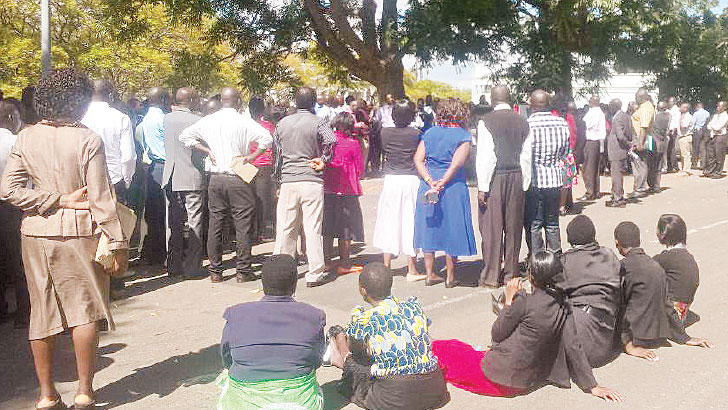Wage bill grows 136% In 5 years—analysis
Malawi’s public sector wage bill has grown by 136 percent in five years, a situation analysts say leaves government with limited fiscal space and triggers rising budget deficits.
A Business Review analysis shows that the public sector wage bill has ballooned from K222.2 billion in the 2015/16 financial year to a projected K525.3 billion in the current financial year.
On the other hand, the number of public sector employees has increased by about 29 percent from 178 000 in the 2005/06 fiscal year to 228 762 as of October 2020.

For instance, the 2020/21 public sector wage bill is one third of the projected K1.718 trillion of the recurrent expenditure.
Analysts argue that with such a large share of government expenditure allocated to wages and salaries, it leaves limited space for non-wage expenditure on items such as teaching materials in schools, medicines in hospitals and maintenance of existing capital investments. In a written response on Tuesday, Alliance Capital Limited research manager Bond Mtembekeza said that with the rising wage bill, government’s task is to find ways of meeting the wage bill sustainably and efficiently.
He said the wage bill will continue rising as public servants demand pay rises.
Said Mtembezeka: “The real issue should be on how government will continue to satisfy those demands amid a rising wage bill. It means government has to constantly raise more money either through debt or through various streams of revenue.
“So, the issues of diversifying sources of revenue, improving revenue collecting efforts by making them more robust and efficient and broadening the tax base come into play.”
Speaking separately, economic statistician Alick Nyasulu noted that the wage bill is sustainable, saying the issue of concern should always be recurrent expenses where a lot of public revenue is lost to fraud and over-invoicing.
“Wages are statutory expenditures and government is bound by law to meet them and the fiscal position remains solvent as there has never been a threat of default,” he said.
In his 2020/21 Mid-Year Budget Review Statement on Friday, Minister of Finance Felix Mlusu said that total expenditure has been revised upwards from K2.190 trillion to K2.334 trillion.
Both recurrent expenses and development expenditure lines have also been adjusted upwards to K1.718 trillion and K615.8 billion, respectively with total deficit for the 2020/2021 fiscal year revised upwards from K755.1 billion to a record K810.7 billion, or 8.8 percent of the nominal gross domestic product pegged at K8.1 trillion.
The deficit is expected to be covered through foreign financing of K246.3 billion with the balance of K564.4 billion to be financed through domestic borrowing.





